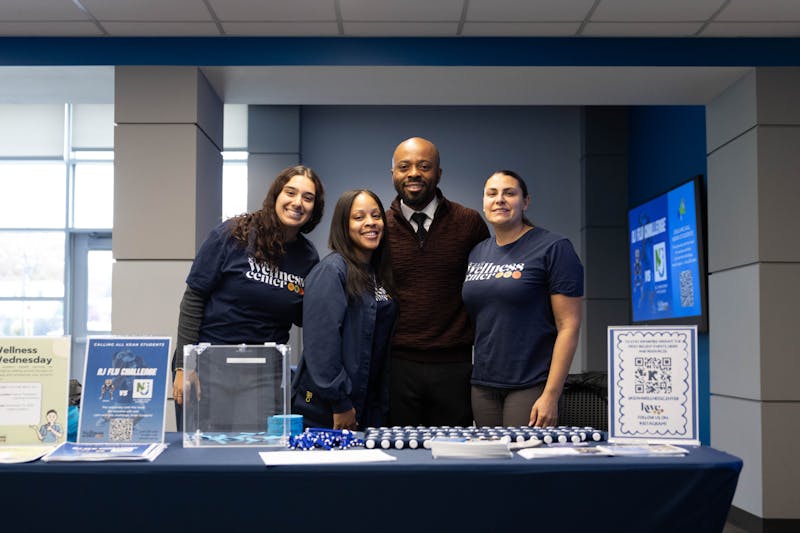On Thursday, February 21, 2013, Professor Gloria Brown-Marshall graced the University Center Little Theater in honor of Black History Month. As soon as the clock stroked 12:30 p.m., Brown-Marshal began her presentation highlighting the meaning of civil rights, as well as two civil right cases that took place in 1955 and a recent case that took place in 2012.
Emmett Louis Till, a 14 year old African-American was visiting relatives in the south in the summer of 1955. In the age of biased civil rights actions and verbal abuse, African-Americans were looked down upon if they were witnessed having any type of relationship or simple conversation with Caucasians. While spending quality time with his cousins, in the small town of Money, Mississippi, Till entered a grocery store and was supposedly speaking with a white female cashier. A few days later, a group of white males kidnapped, beat, and shot Till in the head. News broke out of the massacre and the men were tried. However, due to the rule being overturned by an all-white-male jury, the men were given their freedom once again. According to Brown-Marshall, Till's body was found in a river where another body was found. Till's funeral was an open casket, per request by his mother, in order for all attendees to glimpse at the mistreatment that caused Till's demise."There are a total of 4,000 reported cases of lynching," states Brown-Marshall. "Imagine how many cases of lynching are unreported."
Brown-Marshall also touched upon Trayvon Martin's case, which took place in 2012. Martin, a 17 year-old boy who was a victim of racial profiling and assault, was aggressed by a neighborhood watch volunteer by the name of George Zimmerman. Zimmerman, a Hispanic male, was doing his rounds in a residential area in Stanford, Florida when he notices Martin. After immediately calling 911, Zimmerman is given specific orders to not confront Martin. However, because he believed that Martin was "up to no good, or he's on drugs or something. It's raining, and he's just walking around," Zimmerman continued to follow Martin until he was finally face-to-face with the teen. No one truly knows what happened next; however, what is known is that there was a dispute between the two males and that night Martin departed from the living world. In February 2013, Judge Debra S. Nelson confirmed the jury selection for Zimmerman's case to begin on June 10, 2013. "If Trayvon would have known about the Stand your Ground act he would probably still be on this earth today," states Brown-Marshall.
Brown-Marshall continued on to explain the importance of understanding not only civil rights but also about cases that society may have forgotten. "To this day there are still civil rights cases that date back to the 1800's," explains Brown-Marshall. "A case will remain open until the culprit is found." With many nods of approval, Brown-Marshall began to slowly end her presentation. Voicing a few empowering words for the audience, Brown-Marshall recalls back to the time in which people were once enslaved. "We are the only race who has risen up in the country of their oppression," speaks Brown-Marshall with her steady stare to the audience. "It is unheard of and it was all cased on non-violent attempts."
Today, Brown-Marshall lives in New York where she is completing a book of essays by the name of "The Haunted Woman". Not only is she an award-winning playwright, but she is currently an associate professor at John Jay College of Criminal Justice [CUNY].






